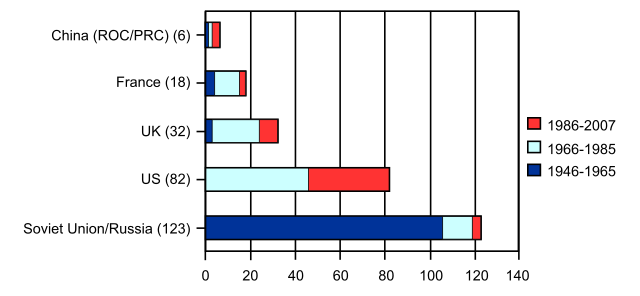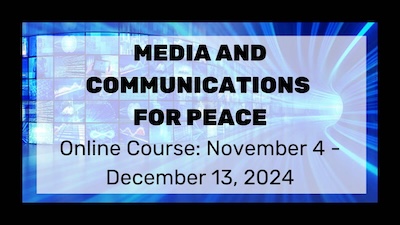(This is section 37 of the World Beyond War white paper A Global Security System: An Alternative to War. Continue to preceding | following section.)

Article 42 of the Charter gives the Security Council the responsibility for maintaining and restoring the peace. It is the only UN body with binding authority on member States. The Council does not have an armed force to carry out its decisions; rather, it has binding authority to call on the armed forces of member States. However the composition and methods of the Security Council are antiquated and only minimally effective in keeping or restoring the peace.
Composition
The Council is composed of 15 members, 5 of whom are permanent. These are the victorious powers in World War II (U.S., Russia, U.K., France, and China). They are also the members who have veto power. At the time of the writing in 1945, they demanded these conditions or would not have permitted the UN to come into being. These permanent five also claim and possess leading seats on the governing bodies of the major committees of the UN, giving them a disproportionate and undemocratic amount of influence.
The world has changed dramatically in the intervening decades. The UN went from 50 members to 193, and population balances have changed dramatically as well. Further, the way in which Security Council seats are allotted by 4 regions is also unrepresentative with Europe and the UK having 4 seats while Latin America has only 1. Africa is also underrepresented. It is only rarely that a Muslim nation is represented on the Council. It is long past time to rectify this situation if the UN wants to command respect in these regions.
Also, the nature of the threats to peace and security has changed dramatically. At the time of the founding the current arrangement might have made sense given the need for great power agreement and that the main threats to peace and security were seen to be armed aggression. While armed aggression is still a threat – and permanent member the United States the worst recidivist – great military power is almost irrelevant to many of the new threats that exist today which include global warming, WMDs, mass movements of peoples, global disease threats, the arms trade and criminality.
One proposal is to increase the number of electoral regions to 9 in which each would have one permanent member and each region have 2 revolving members to add up to a Council of 27 seats, thus more perfectly reflecting national, cultural and population realities.
Revise or Eliminate the Veto
The veto is exercised over four types of decisions: the use of force to maintain or restore the peace, appointments to the Secretary-General’s position, applications for membership, and amending the Charter and procedural matters which can prevent questions from even coming to the floor. Also, in the other bodies, the Permanent 5 tend to exercise a de facto veto. In Council, the veto has been used 265 times, primarily by the U.S. and the former Soviet Union, to block action, often rendering the UN impotent.
The veto hamstrings the Security Council. It is profoundly unfair in that it enables the holders to prevent any action against their own violations of the Charter’s prohibition on aggression. It is also used as a favor in shielding their client states’ misdeeds from Security Council actions. One proposal is to simply discard the veto. Another is to allow permanent members to cast a veto, but 3 members casting it would be necessary to block passage of a substantive issue. Procedural issues should not be subject to the veto.
Other Necessary Reforms of the Security Council
Three procedures need to be added. Currently nothing requires the Security Council to act. At a minimum the Council should be required to take up all issues of threat to peace and security and decide whether to act on them or not (“The Duty to Decide”). Second is “The Requirement for Transparency.” The Council should be required to disclose its reasons for deciding to or deciding not to take up the issue of a conflict. Further, the Council meets in secret about 98 percent of the time. At the least, its substantive deliberations need to be transparent. Third, the “Duty to Consult” would require the Council to take reasonable measures to consult with nations that would be impacted by its decisions.
(Continue to preceding | following section.)
We want to hear from you! (Please share comments below)
How has this led you to think differently about alternatives to war?
What would you add, or change, or question about this?
What can you do to help more people understand about these alternatives to war?
How can you take action to make this alternative to war a reality?
Please share this material widely!
Related posts
See other posts related to “Managing International and Civil Conflicts”
See full table of contents for A Global Security System: An Alternative to War








